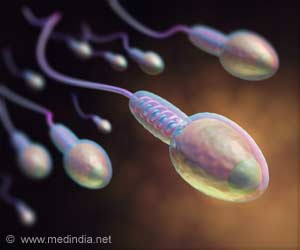Pollution and unhealthy lifestyle are leading to infertility in men in Shanghai. At least a hundred thousand men are thus affected.
Pollution and unhealthy lifestyle are leading to infertility in men in Shanghai. At least a hundred thousand men are thus affected.
While environmental pollution is worsening all the time, work pressure is also increasing, contributing to an unhealthy lifestyle.Radiation from cellphones, computers and other electronic devices, air, water and food pollution, combined with the sedentary lifestyle followed in cities are all to blame for a possible "quality decline" of the sperm, it is felt.
Li Zheng, a urologist from Shanghai Jiao Tong University affiliated Renji Hospital, told China Daily that there was less sperm motility in men's semen these days and some change could be observed in the sperms' morphology over time, which might affect successful conception.
"About 50 percent of failures to achieve pregnancy is due to an abnormality or possibly an absence of sperm in the male partner's semen," Li said.
"The social significance of such a problem is obviously very huge. Since many of today's young couples are the only children of their parents, they are under pressure from their parents to have children."
Across China, an estimated 8 to 10 percent of the reproductive population is now experiencing problems having children, Li added.
Advertisement
The rate of a successful sperm donation is only 1 to 2 percent, said Li, adding that in the bank's more than five-year history only 1,000 or so people qualified as donors, who have to be "both physically and mentally" healthy.
Advertisement
Li also thinks that men should be more aware of preserving their sperm before any potential threat affects the quality. He advised people with testis cancers, firemen and astronauts, as well as those involved in occupation in radiology, to extract and conserve their sperm for future use.
A couple of years ago British scientists observed in hairless rodent living underground in Africa a link between stress and infertility.
Stressed-out mole-rats became infertile after constant bullying by the colony's "queen", the only female to reproduce. But this infertility was reversible and when the queen died, a previously non-breeding female quickly took her place, they found.
Chris Faulkes, a biologist at the University of London, said the animals' behaviour patterns translated into suppression of certain fertility hormones and understanding the process could help explain stress-related infertility in humans.
"Similar things might be happening in humans," he said in an interview. "It's likely that it is all acting on similar pathways in the brain."
"By making careful comparisons with model species like mole-rats, we may be able to tease apart the relative contribution of genes, environment, upbringing and culture to complex social behaviour in our own species," Faulkes had added.
Source-Medindia
GPL/L













